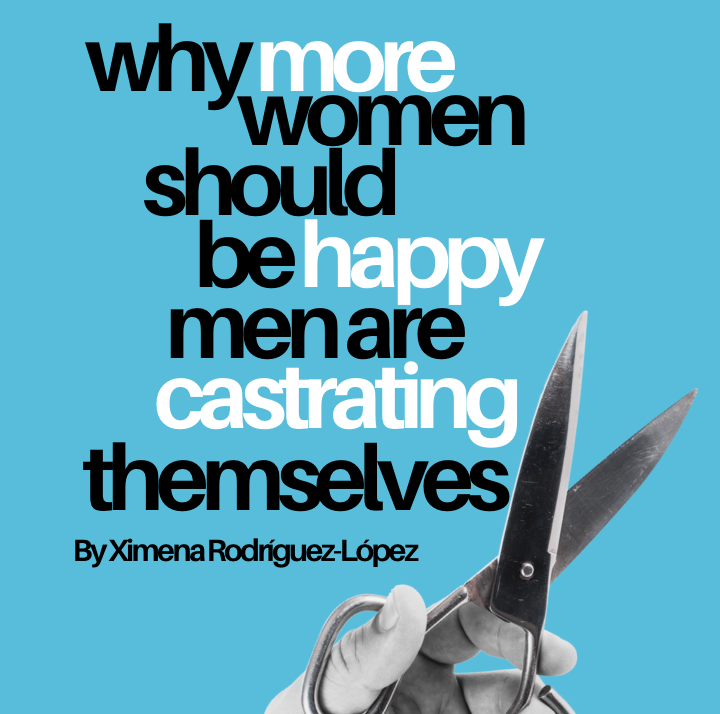South Korean Women And 4B Today
South Korea's 4B Movement in 2025: Radical Feminist Rejection Meets a Nation in Demographic Crisis
By Annette "Annie" Fundora
Seoul, South Korea - In 2025, South Korea finds itself at a crossroads as its birth rate continues to plummet despite aggressive state intervention. At the heart of this crisis is the continued rise of the 4B movement, a radical feminist rejection of patriarchal norms encapsulated in four principles: no dating (bi-yeonae), no sex (bi-sekseu), no marriage (bi-hon), and no childbirth (bi-chulsan).
Originally sparked in 2019 as a pushback against a deeply entrenched culture of misogyny and gender inequality, the 4B movement has not only persisted but spread—both within South Korea and across borders to places like China, Japan, and online feminist circles in the West. In 2025, the movement is no longer fringe. Social media spaces, women-led forums, and digital publications have amplified its core message: Korean women are rejecting traditional roles that expect them to sacrifice autonomy, career, and mental health for marriage and motherhood.
Government efforts to counter the demographic decline have ranged from offering monthly baby bonuses and housing incentives for couples, to providing expanded childcare and paternal leave. Despite these attempts, the fertility rate remains dismally low. In fact, recent data shows it has declined again, resting at 0.71 births per woman—the lowest in the world. In Seoul, the capital city, the fertility rate has dropped below 0.6. National marriage rates have also declined by more than 20% over the past decade. While the government continues to frame the crisis in terms of economics and population sustainability, many Korean women argue that what’s being ignored is the unyielding pressure to conform to a rigid social system that rewards male privilege and punishes female independence.
Young women leading the 4B movement assert that the problem isn’t a lack of support—it’s the expectation that women must participate in a system that has consistently failed to recognize their value outside of domestic labor. Many express that no financial incentive can compensate for the emotional and physical burden of raising children in a society where gender roles remain largely unchallenged.
Critics of the movement argue that it risks widening the gender divide and exacerbating demographic decline. However, proponents insist that the real crisis lies not in women’s refusal to marry and bear children, but in the lack of meaningful structural reform. The workplace remains hostile to working mothers, men are rarely expected to shoulder domestic responsibilities, and media continues to reinforce antiquated gender stereotypes. Until these root issues are addressed, activists say, no amount of cash will reverse the trend.
Additionally, younger generations of Korean women are increasingly prioritizing education, career advancement, mental health, and personal freedom over traditional milestones. Many view marriage as a financial and emotional risk, especially in a country where divorce still carries stigma and gender-based violence remains under-addressed. These deeply felt concerns are not easily erased by government programs that fail to address cultural attitudes and systemic inequality.
Births continue to decline despite state spending. Government data from 2024 revealed that over 280 trillion won (approx. $210 billion USD) has been spent on fertility incentives since 2006, yet birth rates have consistently dropped. Women are not changing course. Fertility is not recovering. Marriage rates are falling. The message from many women is clear: they have had enough.
As the movement continues to gain traction, the gap between the government’s population policies and the lived realities of women grows wider. The 4B movement, once a quiet act of rebellion, has become a powerful mirror reflecting a society that must reckon with its treatment of women—not just to save its birthrate, but to rebuild trust with half its population. Without that reckoning, South Korea’s demographic future remains uncertain, and increasingly, defined by resistance rather than compliance.


Brooklyn, NY - Many Black women still hesitate to identify with feminism — not because feminism "doesn't speak to them," but because the label has been tarnished through decades of community shaming, media misrepresentation, and the sidelining of Black women's voices within mainstream feminist spaces.